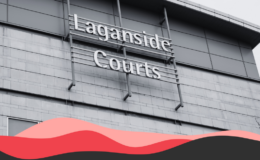- Northern Ireland currently has around £270m in unallocated public money
- As things stand, this money will not be used to cover existing shortfalls – or anything else
- Without an extraordinary intervention from Westminster, this money can only be spent by an Executive
- An Executive can spend this money however it chooses, whether that’s reducing deficits, new cost-of-living schemes, a mixture of both – or something else entirely
- However, when Stormont departments go over budget it comes out of the next year’s allocation
On September 21, DUP MP Sammy Wilson told BBC Radio Ulster’s Talkback that £400m in public funds left unallocated by the failure to establish an Executive following May’s Assembly election is set to be used to cover spending by departments and other public bodies in Northern Ireland, after it was put to him that at least some of this money could be used to ease the cost of living crisis if and when an Executive is formed.
Mr Wilson, in conversation with Sinead Quinn from Derry Against Fuel Poverty, said:
“There isn’t any £400 million sitting in the coffers. Indeed it is estimated that the deficit across government departments in Northern Ireland for this year is about £1.5 billion, and optimistically, £600 million.”
Ms Quinn said: “So what you’re saying is that money that was sent to deal with the cost of living crisis is not being devolved, is now being sent off to government department deficits?”
Mr Wilson continued:
“It’s being used to pay, it’s demands from the hospitals, from schools, for heating […] it’s demands for the pay increases of civil servants which are statutory, have to be paid, it’s demands for the running costs of departments which have to be met… There’s £400 million which is available there, and there’s a deficit and a hole in the budget to pay for some of the cost of living things which affect government departments which would wipe that away.”
This isn’t quite right, based on information provided to FactCheckNI from the Department of Finance.
Unallocated public money does not automatically get used to plug gaps in departmental spending. In fact, without Executive approval, it doesn’t do anything at all.
Although the amount of unspent money is now closer to £270m than £400m, there is no mechanism for this cash to be spent without the establishment of an Executive (or by Westminster choosing to step in and direct devolved spending).
Should an Executive be formed, if it wanted to use the unspent money on schemes to ease the cost-of-living crisis, it could do so. Departmental deficits remain relevant, however. Any shortfalls in a given year are removed from the following year’s budget.
And as things stand, NI’s public services are set to go over budget this year. This means there would likely be many competing demands for any public money that suddenly became available for spending (and also that there are likely to be overspends which eat into next year’s public purse).
Nevertheless, while a theoretical Executive could allocate this money to cover overspending among its departments, it could also choose to use some or all of this money on new schemes to help with the cost of living. In fact, an Executive could spend the money however it likes.
Wasn’t there £400m to spend?
The amount of unallocated funds at Stormont has fluctuated up and down since the last Northern Ireland Draft Budget was published for consultation on 22 December 2021.
In April 2022, we reported that Northern Ireland had £334m unallocated funds.
On September 23 2022, a Department of Finance spokesperson confirmed that the total additional funds had since risen to £436.7m.
However, the spokesperson went on to clarify that “as Treasury has already provided a Barnett consequential (of £164.8 million) for £200 of the £400 Energy Bills Support Scheme payment this will be reversed in order to fund the full £400 payment, reducing the additional funding available to £271.8 million.”
In other words, £164.8m of the funding was intended to pay for half of the £400 Energy Bills Support Scheme. This was supposed to be handled by the Executive but, as Westminster is now responsible for its delivery, the relevant money must now be handed back.
Will budget shortfalls wipe out this cash?
Given high inflation rates, government departments in Northern Ireland will need more funding to operate this year than they needed last year.
Health minister Robin Swann wrote to Executive ministers on 25 August 2022 to warn that the Department of Health is facing a £400m overspend this financial year. In September 2022, the Health Committee was told that the overspend would be more like £450m, due to additional energy costs and pay increases.
On 24 August 2022, Neil Gibson, a senior civil servant in the Department of Finance began using emergency powers to keep departmental funding flowing. Section 59 of the Northern Ireland Act allows up to 95 per cent of the previous year’s budget to be spent in this way.
However, as per Section 64 of the Northern Ireland Act, no new funding policies can be started without a draft budget agreed by an Executive.
When the Northern Ireland Assembly is fully functioning, money can be reallocated to departments in in-year monitoring rounds. However, monitoring rounds have not been taking place in the absence of a functioning Executive.
The unallocated funds are mostly from Barnett consequentials. These are funds allocated to Northern Ireland to match funding for projects in England (and sometimes Scotland and Wales).
Most Barnett consequentials are unhypothecated. This means that this funding does not have to be spent on the same schemes as in England, Scotland or Wales. The current unallocated funds therefore could be, but do not have to be, spent on measures to ease the cost of living. The Northern Ireland Executive decides how to spend them.
The Department of Finance spokesperson said, “there will be many competing demands on the funding available including increased energy costs, providing support with cost of living and pressures on public services. Therefore, decisions on how the available funding is allocated are cross-cutting and require Executive agreement.”
Ultimately Westminster has the power to step in and spend this money (it could even draft a budget for all of NI as it did in March 2018 during the last Assembly collapse), but it is usually reluctant to intervene in devolved matters.




